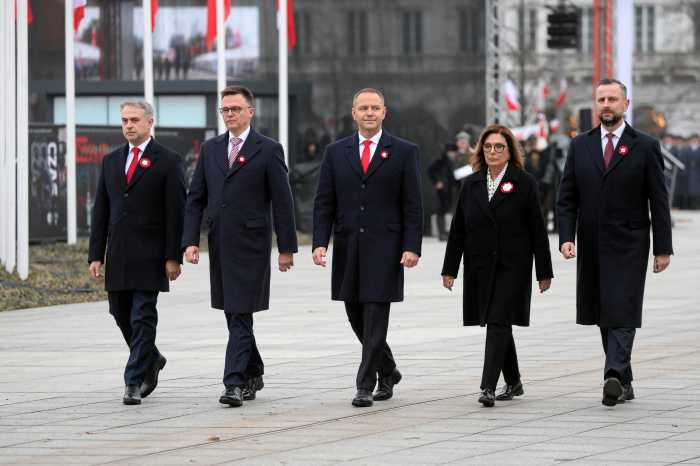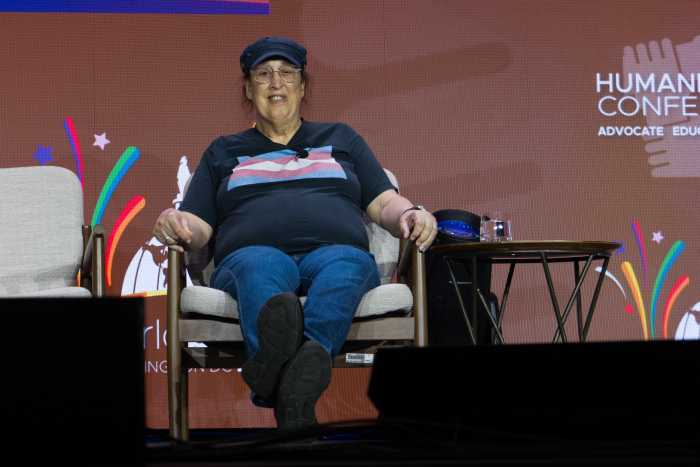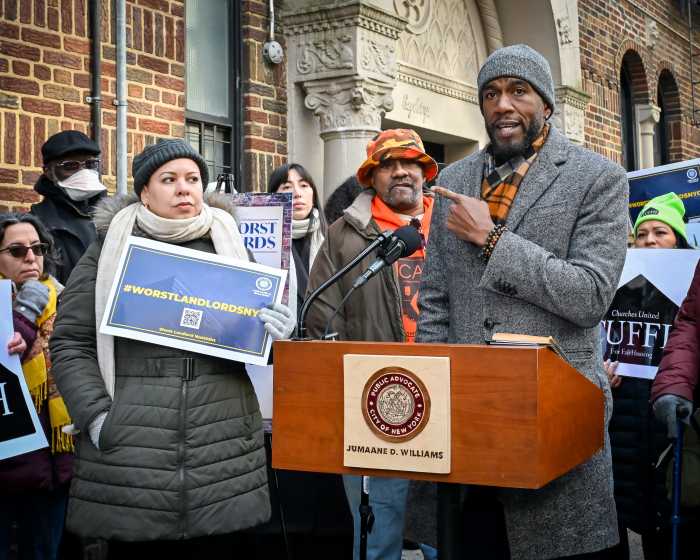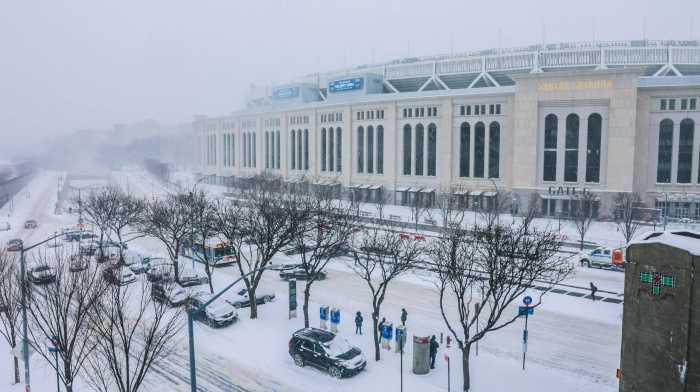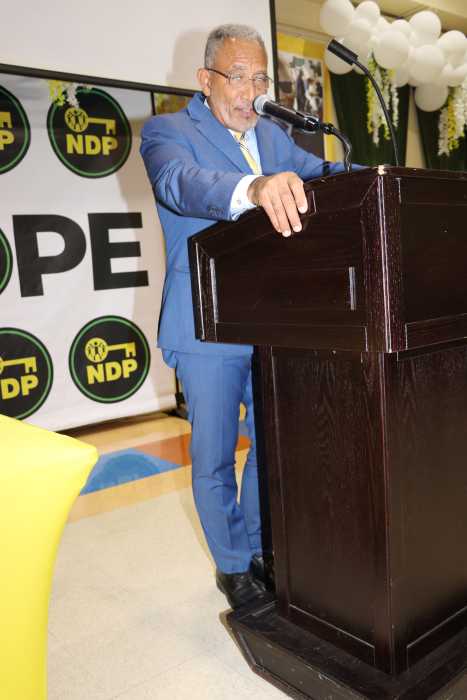I’m proud of Gay City News for affording Scott Long, who runs Human Rights Watch’s LGBT desk, a chance last week to criticize this newspaper, and me.
No one should be above constructive criticism—neither the gay press, nor human rights organizations.
However, in his op-ed, Long made some rather ugly assertions about me that were either distortions or, at best, casual about the facts. Let me set the record straight on these complicated matters.
Long wrote that I “began a campaign in Gay City News to prove that the Mashad case [involving the hanging of two teenagers] was one of consensual homosexual sex…” and called my reporting on the situation “deeply irresponsible.”
But what Long doesn’t mention is that he’s upset because I had criticized Human Rights Watch in an article on the case in these pages a year ago.
Last summer, after Long sent an e-mail to the leaders of the largest U.S. national gay groups warning them not to publicly protest the public hangings of the teens, Mahmoud Asgari and Ayaz Marhoni—as European gay rights groups in France, Sweden, Ireland, England, Russia, Poland, and elsewhere were doing—because, HRW said, they were guilty of rape, I telephoned the head of HRW’s Iranian desk, Hadi Ghaemi, to find out on what basis HRW was affirming that the rape of which the regime had accused the two teens had actually taken place. He told me his only source in the city confirming it was the regime-controlled newspaper in Mashad, Quds.
I was so taken aback by that answer that I put the question to Ghaemi again to make sure I had understood him correctly. The reason I was shocked was that, in three decades as a journalist, and having done human rights reporting from many despotic countries—including extensive reporting behind the Iron Curtain before the fall of Communism—I know that no responsible human rights organization or journalist would ever corroborate a capital charge against members of an officially persecuted group solely on the basis of a newspaper controlled by that country’s regime. But that’s exactly what Long, who relied on Ghaemi’s “finding,” and Ghaemi himself, did last year in the case of the two hanged teens.
I reported that multiple sources in Iran contradicted the regime’s claims of a “rape” by the two teens. Afdhere Jama, the editor of Huriyah, a magazine for gay Muslims, on July 11, 2006, circulated an e-mail replying to a memo which Long had widely sent opposing the July 19 International Day of Action Against Homophobic
Persecution in Iran—the first anniversary of the execution of Ayaz and Mahmoud. Jama had spoken directly with three gay sources in Mashad about the two teens, but Long’s memo distorted Jama’s reporting. Jama, in his e-mail, reiterated what he’d told me last year—that he’d spoken directly with three gay people in Mashad who had been with Ayaz and Mahmoud at a funeral for a young gay man who had died in jail, which Jama termed a “central event” in the case, with obvious political overtones. It was not just a “party,” as Long had written.
Jama’s recent e-mail is worth quoting at length.
“According to these (three) people, Ayaz and Mahmoud were clearly ‘together’ [as a couple],” he wrote. “Also, one of the sources knows the family of Ayaz—hence knows more about the couple. According to my sources, the boys were arrested about a year and a couple of months before the execution. On the day of their arrest, five boys were fondling each other in a semi-public area. Their ages were 13, 14, 15, 15 (Mahmoud), and 17 (Ayaz). These are all boys that knew each other, and had homosexual relations with each other (perhaps for years).
“A woman called her civilian police husband who then tried to arrest them all (with the help of civilians), but only Ayaz, Mahmoud, and a 13-year-old boy were caught. Because the age of consent for men in Iran is 15, the 13-year-old boy was automatically then classified as raped by then-15-year-old Mahmoud and 17-year-old Ayaz. So, in the eyes of the Iranian law, that boy was raped. Whether the other boys were a few years older or not is not even a question, not to mention whether he was a willing participant. And because the issue is homosexuality, it even carries a harsher sentence.
“The father of the 13-year-old boy claimed his son was raped because, in the conservative society of Iran, it is much better to have a heterosexual raped son than a homosexual willing participant. Everyone and anyone from the East can identify with this…
“It should also be noted that the Quds daily [newspaper] HRW relied on is a government-controlled news agency, who has in the past and the present contributed news only acceptable to the government. As far as I know, there are really no independent Iranian news agencies which dealt with this story—because they could not honestly deal with it and get away with it.”
The hanging of two minors for any reason is enough by itself to merit worldwide protest. But to take two adolescents and string them up by their necks in a public square for participating in a circle-jerk is evidence of religious puritanism gone mad.
Jama’s reporting that the rape charges against Ayaz and Mahmoud were trumped up was confirmed to me by the editors of the underground gay magazine in Iran, MAHA, based on their own sources (at their request I could not name their publication in print last year, but they have subsequently gone public with their criticism of the regime, and in fact endorsed the global July 19 Day of Action last month.)
And all sources—Jama, MAHA, the Persian Gay and Lesbian Organization, and individual gays inside Iran, as well as respected Iranian scholars in exile—have repeatedly warned that Westerners were too quick to believe criminal charges brought by the regime against homosexuals and others, which were often invented, and that confessions to nonexistent crimes were extracted by torture. That, Iranians continue to tell us, still goes on today. And if asked to choose between believing the religious regime’s cover story for the execution of the two teens, and giving credence to the multiple testimonies from gay people inside Iran, I know whom I choose to believe.
As to the case of an execution in the city of Arak with which Long taxes me, the victim was described as gay by the International Lesbian and Gay Association, by the Netherlands Secretariat of the International Federation of Iranian Refugees, by the London Observer, and by the French gay group Solidarite Internationale LGBT—but all gave conflicting dates and information on the execution. So, I dutifully reported all four conflicting versions for Gay City News and recounted my attempts to try to track down the truth. I carefully wrote in the lead of my story last year on the Arak case that “it is difficult to confirm these reports with total accuracy, because of the climate of fear which prevails in the Islamic Republic of Iran today. The… regime has heightened its campaign of repression of gay people since the worldwide protests against the hanging of two gay teens in Mashad on July 19, and Iranians—both gay and straight—are afraid to communicate with the outside world on these matters.”
Readers were provided with as much information as could be had after extensive effort, and left to draw their own conclusions.
Finally, Long accuses me of putting a Tehran attorney hired by an exile group to defend the condemned in Arak at risk by publishing his name. In a series of telephone interviews with Farshad Hosseini of the International Federation of Iranian Refugees’ Netherlands Secretariat, it was Hosseini who quite proudly gave me the name of the attorney. At no time did he ask me not to publish it. Had he indicated in any way that the name was confidential, I would not have printed it, but he did not. And since the entire purpose of my conversation was to gather information that could be published, as Hosseini well knew, if Long has a quarrel it should be with Hosseini, not me.
Furthermore, the attorney could not possibly have represented the Arak defendants anonymously in court. But then Long adds that he concluded that the attorney “probably never existed.” Long can’t have it both ways—I could not put in jeopardy the life of a non-existent person.
In any case, all I did was accurately report the information the IFIR spokesman gave me on the record, and attributed it to him. That’s what journalists do.

